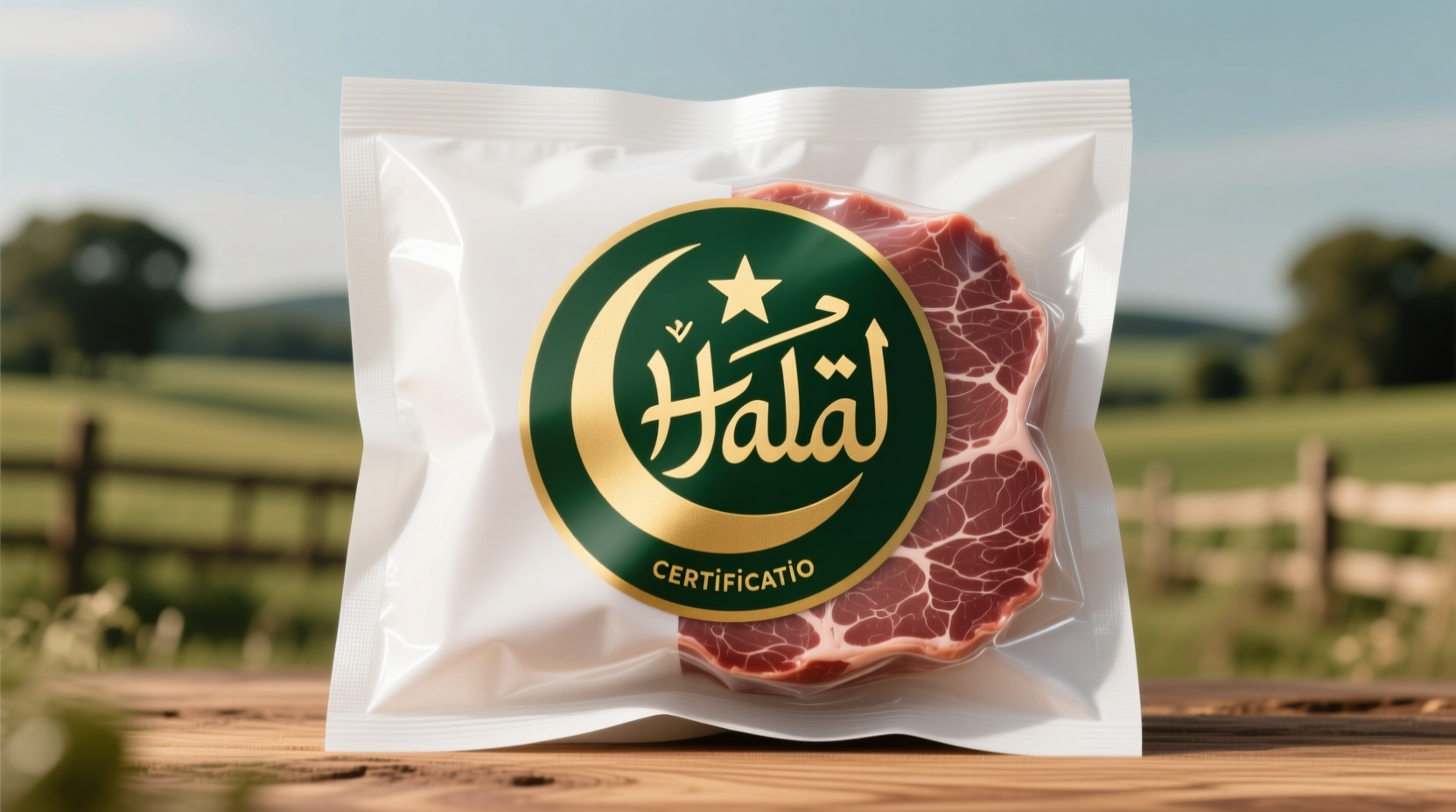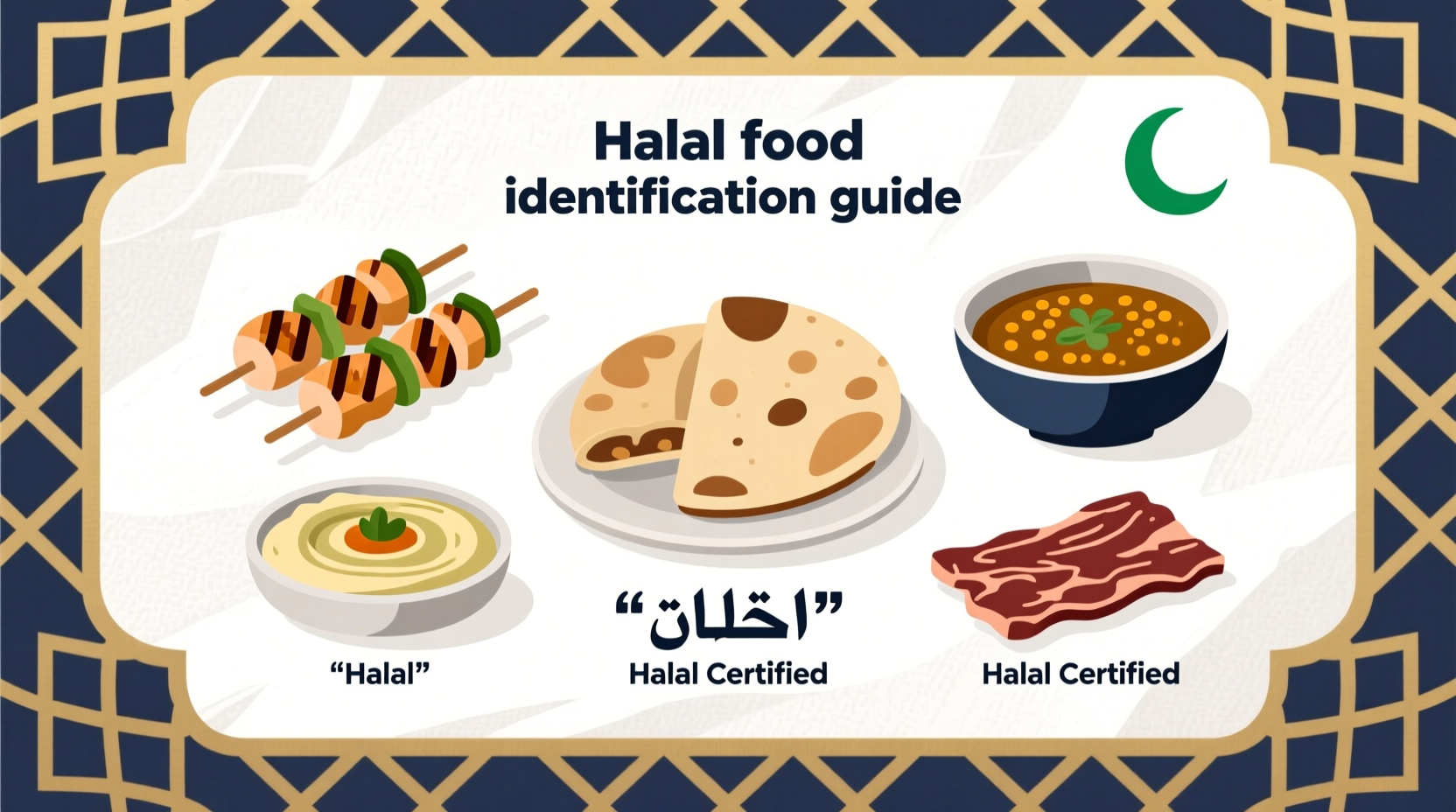Halal food refers to any food permissible under Islamic law, primarily requiring that animals are slaughtered with a swift cut to the throat while invoking Allah's name, avoiding pork and alcohol entirely, and ensuring no cross-contamination with prohibited substances. Most seafood, dairy, fruits, vegetables, and properly slaughtered meat qualify as halal.
Understanding what food is halal goes beyond simple dietary rules—it's about maintaining spiritual consciousness through daily choices. For Muslims worldwide, halal certification provides assurance that food meets religious requirements, while non-Muslims increasingly seek halal options for their perceived purity and quality. This comprehensive guide breaks down halal food principles with practical examples you can apply immediately in grocery stores, restaurants, and your kitchen.
Core Principles of Halal Food
Halal, meaning "permissible" in Arabic, represents foods Muslims may consume according to Quranic guidelines. The opposite—haram—refers to prohibited items. Understanding halal requires examining three critical aspects: ingredients, preparation methods, and intentionality.
Islamic dietary laws originate from Quranic verses including Surah Al-Ma'idah 5:3, which explicitly prohibits carrion, blood, pork, and animals slaughtered in names other than Allah's. The Prophet Muhammad (PBUH) further clarified these principles through hadiths, establishing guidelines still followed today.
Halal Food Categories Explained
Not all foods require certification—many are inherently halal. Let's examine each category with practical examples:
Naturally Halal Foods
These items don't require special processing or certification:
- Fresh produce: All fruits and vegetables
- Dairy products: Milk, cheese, and yogurt from halal-certified sources
- Seafood: Most schools of Islamic thought consider all seafood halal (with some exceptions in Shia tradition)
- Grains and legumes: Rice, wheat, lentils, beans
Meat Requiring Halal Slaughter
Land animals must undergo dhabihah—a specific slaughter method where:
- A sharp knife severs the throat, windpipe, and blood vessels
- The name of Allah is invoked at the time of slaughter
- Blood must drain completely from the carcass
- The animal must be alive and healthy at time of slaughter
| Permitted Animals | Prohibited Animals |
|---|---|
| Cattle, sheep, goats | Pigs and all pork products |
| Chickens, turkeys, ducks | Carnivorous animals with fangs (lions, tigers) |
| Rabbits (according to most scholars) | Birds of prey with talons (eagles, hawks) |
| Fish with scales | Reptiles and amphibians |
Hidden Non-Halal Ingredients to Watch For
Modern processed foods often contain unexpected haram components. Be vigilant for these common additives:
- Gelatin: Typically derived from pork (check for "bovine gelatin" or halal certification)
- Enzymes: Rennet in cheese may come from non-halal slaughtered animals
- Alcohol-based flavorings: Used in many vanilla extracts and processed foods
- L-cysteine: A dough conditioner sometimes sourced from human hair
The Islamic Food and Nutrition Council of America (IFANCA) reports that over 60% of processed foods contain questionable ingredients requiring verification. When in doubt, look for recognized halal certification logos from organizations like IFANCA, ISNA, or HFA.
Halal Certification Evolution Timeline
As global food systems became more complex, formal halal certification emerged to address modern challenges:
| Period | Development |
|---|---|
| Pre-20th Century | Muslim communities relied on personal knowledge and local butchers |
| 1960s-1980s | First halal certification bodies established in Muslim-majority countries |
| 1990s | Western countries developed certification standards for growing Muslim populations |
| 2000s-Present | International standardization efforts and digital verification systems |
Navigating Different School of Thought Variations
Islamic jurisprudence recognizes four major schools (Hanafi, Maliki, Shafi'i, Hanbali) with slight differences in halal interpretation:
- Seafood: Hanafi school prohibits non-fish seafood, while others permit all sea creatures
- Alcohol traces: Some scholars allow foods with negligible alcohol from natural fermentation
- Stunning animals: Debate exists about whether pre-slaughter stunning invalidates halal status
For those following specific traditions, consulting local religious authorities provides clarity on these nuanced differences. The European Council for Fatwa and Research notes that 78% of halal-related questions involve these contextual interpretations rather than core prohibitions.
Practical Halal Food Guidance for Daily Life
Implementing halal principles in modern contexts requires practical strategies:
Grocery Shopping Tips
- Look for recognized halal certification logos on packaged goods
- When buying meat, establish relationships with trusted halal butchers
- Read ingredient lists carefully for gelatin, enzymes, and alcohol derivatives
- Choose whole foods over processed options when certification is unclear
Dining Out Strategies
- Use apps like Zabihah to locate certified halal restaurants
- Ask specific questions about preparation methods, not just "is this halal?"
- Request no alcohol in cooking when ordering dishes that typically contain it
- Be aware that "Muslim-owned" doesn't automatically mean halal-certified

Common Misconceptions About Halal Food
Several myths persist about halal dietary practices that deserve clarification:
- Myth: Halal slaughter is cruel to animals
Fact: Studies show properly performed dhabihah causes minimal pain and allows more complete blood drainage than stunning methods - Myth: Halal food contains special "blessings"
Fact: Halal refers to permissibility, not supernatural qualities—the focus is on method and intention - Myth: All vegetarian food is automatically halal
Fact: Vegetarian products may contain alcohol-based flavorings or non-halal processing aids
Global Halal Food Market Insights
The halal food industry has grown substantially, reflecting both religious adherence and quality perceptions:
- Global halal food market valued at $1.2 trillion in 2023 (Statista)
- Non-Muslim consumers represent 35% of halal product purchasers (IFANCA survey)
- 72% of Muslim consumers consider halal certification "very important" for meat purchases (Gallup)
- Over 80 countries now have formal halal certification requirements for imports
These statistics demonstrate halal's evolution from religious requirement to global food standard valued for its emphasis on purity and ethical production.
Building Confidence in Your Halal Food Choices
Developing confidence in identifying halal foods involves both knowledge and practical application. Start with these actionable steps:
- Identify your local halal certification authority and learn their standards
- Build relationships with trusted suppliers who understand halal requirements
- Learn to recognize common non-halal ingredients in processed foods
- Join community resources like mosque food committees for guidance
- When uncertain, choose simpler whole foods that require less verification
Remember that intention matters as much as the food itself—approaching dietary choices with mindfulness transforms eating into an act of worship. As you implement these guidelines, you'll develop the discernment needed to navigate increasingly complex food landscapes while maintaining religious compliance.
Frequently Asked Questions
Is all seafood considered halal?
Most Sunni schools consider all seafood halal, while Shia jurisprudence typically permits only scaled fish. Shellfish like shrimp are widely accepted as halal across most traditions, though some scholars differ. The Quranic verse "Lawful to you is game from the sea and its food as provision for you" (5:96) forms the basis for this permissibility.
Can Muslims eat food prepared by non-Muslims?
Muslims may eat vegetarian food prepared by non-Muslims if there's no risk of cross-contamination with haram substances. For meat dishes, most scholars require that the food comes from "People of the Book" (Christians or Jews) who follow proper slaughter methods. Many contemporary scholars recommend halal certification as the safest approach given modern food processing complexities.
Does halal certification apply to non-food products?
Yes, halal certification extends to pharmaceuticals, cosmetics, and personal care products. Any item that might be ingested or absorbed through the skin requires halal verification. This includes medications containing gelatin, alcohol-based perfumes, and skincare products with animal-derived ingredients. Organizations like the Halal Products Research Institute provide certification for these non-food categories.
How can I verify if a restaurant serves truly halal food?
Look for official halal certification displayed prominently, not just "Muslim-owned" claims. Ask specific questions: "Is your meat certified halal by [recognized organization]?" "Do you use separate cooking equipment for halal items?" "What type of gelatin do you use in desserts?" Reputable halal restaurants will welcome these questions and provide documentation. Apps like Zabihah and local mosque recommendations offer verified listings.
Are there exceptions to halal requirements in emergencies?
Islamic jurisprudence permits consuming otherwise haram food when facing starvation or immediate health threats, as stated in the Quran (2:173): "But if one is forced by necessity, without willful disobedience, nor transgressing due limits, then there is no sin." This exception applies only when no halal alternatives exist and only to the minimum necessary for survival. Once the emergency passes, Muslims must return to halal dietary practices.











 浙公网安备
33010002000092号
浙公网安备
33010002000092号 浙B2-20120091-4
浙B2-20120091-4